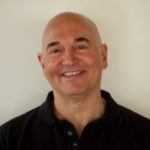by John-Manuel Andriote. This post originally appeared on the SAGEMatters blog.
 A first-ever survey in 2013 of LGBT San Francisco residents aged 60 to 92 found something startling: 15 percent of the 612 respondents had “seriously considered” committing suicide within the last 12 months. Commissioned by the city’s LGBT Aging Policy Task Force, the study found high degrees of disability as well as poor physical and mental health—both of which are associated with depression. The researchers were understandably concerned by the high percentage of LGBT seniors who had considered suicide.
A first-ever survey in 2013 of LGBT San Francisco residents aged 60 to 92 found something startling: 15 percent of the 612 respondents had “seriously considered” committing suicide within the last 12 months. Commissioned by the city’s LGBT Aging Policy Task Force, the study found high degrees of disability as well as poor physical and mental health—both of which are associated with depression. The researchers were understandably concerned by the high percentage of LGBT seniors who had considered suicide.
But look at the numbers in a different way: 85 percent of the respondents did not consider suicide. What’s up with them? Are these folks healthier in general? How are they coping with being “old” and the changes and challenges that go along with it? Could it be that aging means something different to them?
Golden Men
In 2000, New York psychotherapist Harold Kooden and his coauthor Charles Flowers published a book that for many gay men, including me, was revolutionary in its candor and wisdom about growing older. Golden Men: The Power of Gay Midlife not only dared to say, loud and proud, there is life after 30. And not only are a whole lot of gay men living it with great gusto, but you (young and not-as-young gay man) can, too.
In an interview for my new book Stonewall Strong, Kooden told me the impetus for Golden Men “was to write a book for gay men to celebrate aging.” Gay men have a “wealth of experience where it comes to thriving and development,” he said. “Successful aging means looking at one’s history—pain, successes—and removing the false perceptions, the clouds, to look at the reality of our lives. It’s about becoming conscious and aware. Unless you become aware of the negatives, you don’t become aware of the positives.”
Hard-Earned Wisdom from AIDS
Ken South was the president of Prime Timers of Washington, D.C., for 15 years before moving to Fort Lauderdale, Florida, in 2016 (he continues to be involved with the group). In an interview for Stonewall Strong, South reflected on his experience of aging as one of the men whose generation was hardest hit in the early years of the AIDS epidemic. He has worked professionally on HIV/AIDS since the darkest years of the epidemic in the early 1980s. “I never thought in my thirties, forties, and fifties I’d be looking at the obits in the paper,” he said. “That’s something that old people do, looking to see if their friends have passed away. Now that the epidemic has changed, people are dying of other things besides AIDS. I’m now in the senior cohort. In some ways it has helped me to be more self-reliant. It certainly has helped me appreciate the meaning of life, that life is very precious.”
Coming Out Gave Us the Tools We Need to Age Well
Coming out as gay men provides us with powerful weapons we can use in slaying the demon of what UCLA researcher Richard Wight calls “internalized gay ageism.” Throwing off the shame and stigma we were expected to feel for being “different” prepared us to do the same in rejecting stigmatizing attitudes about aging. We are survivors in so many ways—living with HIV or not.
Naming it and claiming our power as survivors is up to each of us.
“In the stories we tell of our lives,” said Brian de Vries, professor of gerontology at San Francisco State University in an interview for Stonewall Strong, “as gay men, as survivors, the victims story is one of discontinuity, how we’re not what we ‘should’ be because of all these things. The victory story is one that sees the ways we can grow from them. It provides hope, direction, and allows you to learn from the experiences.”
Hear more from John-Manuel Andriote when he speaks at the Edie Windsor SAGE Center on Monday, March 26, 2018, at 6:45 pm, on the topic of Defining “Old” for Ourselves.
The opinions expressed in this article are those of the author and do not necessarily reflect those of the Diverse Elders Coalition.

